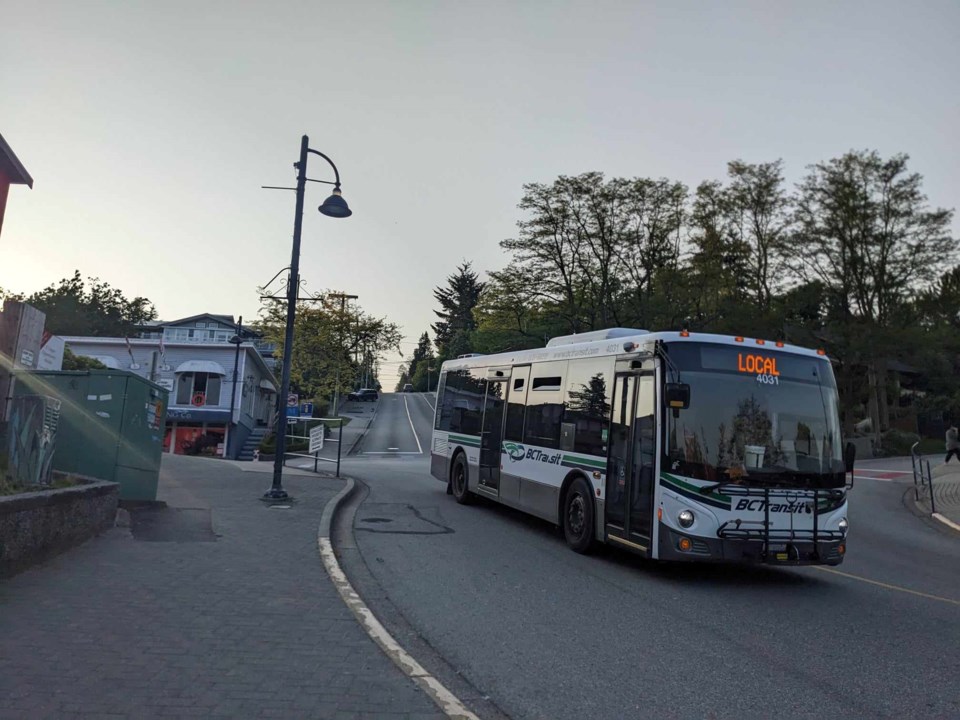The loss of Greyhound service and environmental uncertainty in the face of climate change were among concerns Coast participants raised in a recent transportation study.
In July, Island Coastal Economic Trust released an inter-community transportation study for BC Transit’s Sunshine Coast-Vancouver Island services to help inform future policy and investment decisions in the region.
A new $200,000 mico-granting program, funded by the Ministry of Transportation and Infrastructure will distribute grants up to $15,000 to initiatives proposed by communities involved during the survey. Funding will contribute to regional transportation planning, delivery of regional transportation services and capacity building related to regional passenger transportation.
Information about the application process will be available on the Island Coastal Economic Trust website in late 2023.
The “What We Heard Report” was the result of a series of online surveys and in-person engagement sessions in B.C.’s coasts, including Sechelt and Powell River that were held in June.
Approximately 1,200 residents participated in the study. Local governments, First Nation governments, Indigenous organizations, community groups, transportation providers and research organizations discussed transportation challenges in their region.
Low connectivity between modes of transportation
Participants in Sechelt discussed how difficult it is to travel from the Sunshine Coast to Vancouver Island, or from Powell River to Vancouver. Participants said they purchase up to four tickets from three different companies to make the trip.
The report stated, “The lack of integration and connectivity is expensive, time-consuming, and confusing for riders.”
Gaps and lack of service
Another topic raised in the Sechelt session was the thinning of regional bus operations.
Community members said losing the Greyhound bus system in 2018 was detrimental to small communities and to residents without a personal vehicle. Replacement bus services have been explored, such as the Sunshine Coast Connector and Island Link, but none have been able to sustainably operate.
One participant from Sechelt said,“When Greyhound disappeared, nothing replaced it. As someone who doesn’t drive, if I want to go to Powell River now…I can't.”
Current and future stressors on transportation
Concerns over climate change-exacerbated extreme weather and its impact on transportation infrastructure were also raised at every engagement session.
In the Sechelt session, flooding and rising sea levels were among the highest concerns. One participant in the Sechelt session said,”We have a highway that floods during King Tides; ferry terminals [that] were not designed to accommodate climate change – the ramps don’t work at extreme tides; having one main roadway in and out of town is a huge safety concern.”
Active and alternative transport
Participants also requested increased infrastructure for bicycles and other modes of active transportation. Participants of the Sechelt session proposed a inter-community passenger pathway between Langdale and Lund, designated for bikes, e-bikes and scooters.
Key Findings
Four main points were raised among all communities involved, all of which coincide with previous transportation studies.
- Governance and policy: A frequent proposal was to change how transportation is governed in B.C. Many participants recommended the creation of an inter-regional transportation authority with the mandate to bring together various transportation modes to promote collaboration.
- Community partnerships: Participants stated that the provincial government should be more involved in facilitating and coordinating grass-roots and community-grown transportation opportunities between communities.
- Government support: Participants stated that inter-community transportation requires financial support from the government as the private sector cannot fill that gap on its own.
- Active and alternative transportation: All engagement sessions spoke in support of expanding and improving the safety of active and alternative transportation in order to improve connectivity and reduce the reliance on personal vehicles.
One participant said, “At this time, it feels like the Ministry of Transportation and Infrastructure is just the Ministry of Cars and Trucks.”
Jordan Copp is the Coast Reporter’s civic and Indigenous affairs reporter. This reporting beat is made possible by the Local Journalism Initiative.

